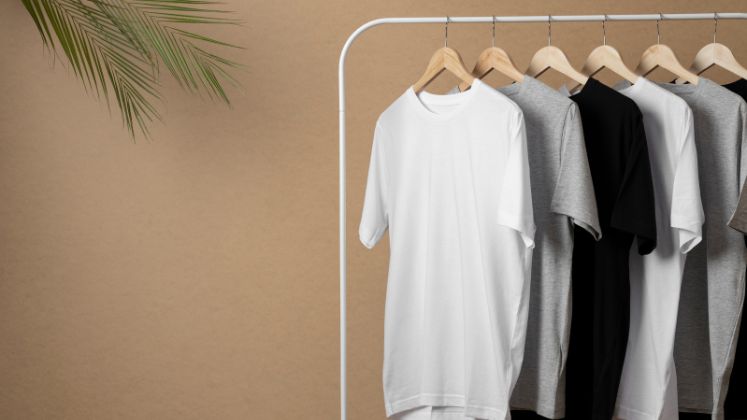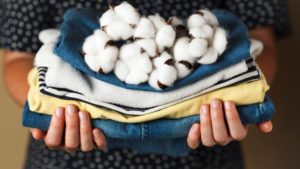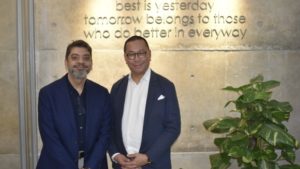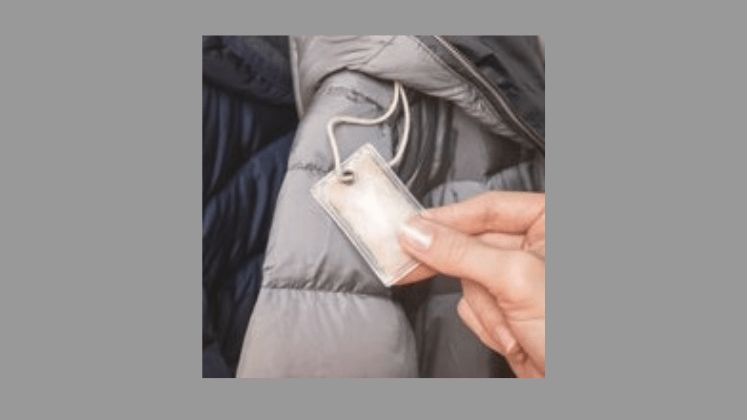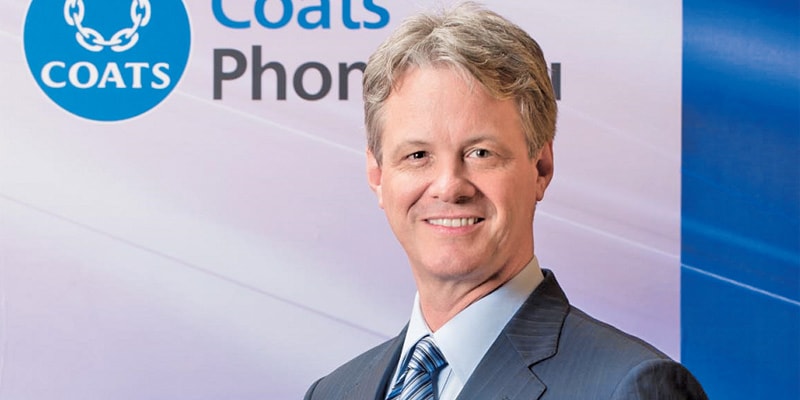
The growth of a company with a long history is often determined by the willingness to reinvent and move with the times. Coats is one company which has taken leadership positioning imbibing on the same. Among its latest endeavours is to be known as much more than a thread manufacturer. The transition of Coats with a legacy of over 250 years has been successfully spearheaded by Paul Forman, the current Group Chief Executive of Coats. Today, Coats has further strengthened its positioning and moved beyond the traditional boundaries of the ‘sewing’ industry. “When I first met Paul, I was impressed with his vision of turning Coats into a company that makes ‘clever thin lines’… he said; if we only make thread then we can only go into garments or shoes, but if we make clever thin lines, then we can go into anything… This sealed the deal and I decided to join the team,” says Bill Watson, Managing Director, Coats Phong Phu, Vietnam.
A person who believes in ‘value’, Bill Watson was associated with Milliken & Company for 24 years before joining Coats, convinced that the vision of the company was in alignment with his sensibility. His extensive understanding of Asia, having spent the last 23 years in the region, puts him in an enviable position to expand business in the region and also develop long-term partnerships for the company. Through associate factories in the country, Watson services the need of Vietnam and Cambodia.
“Coats has a strong delivery culture and also offers people a freedom to operate without undue restriction – that is really appealing to me,” says Watson on his experience of working for Coats for over five years now.
As a company, Coats has been in Vietnam for more than 26 years now and the operations are very important to the global success of the company, as the country is a major hub in South East Asia for global apparel sourcing. Vietnam’s business environment further enhances its geographic benefits. “No other country in the world has the potential to access the exponential levels of free trade agreements and competitive liberalisation that could come about from the combination of The Trans-Pacific Partnership (TPP), the Regional Comprehensive Economic Partnership (RCEP) and the EU and Vietnam Free Trade Agreement,” argues Watson.
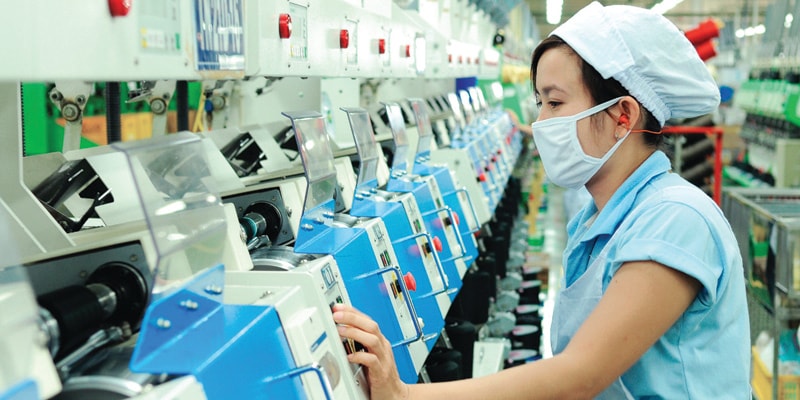
Watson firmly believes that the future of the apparel business is here in Vietnam. “There are real infrastructure and political concerns in parts of Africa and things we talk about having in Vietnam and other Asian countries, like stable Government and low inflation, are not as evident across Africa. Yes, people are going to Africa, but it’s not like a full-on movement there. They are testing the waters, but there is still a long way to go,” reasons Watson. Confident of business growth in Vietnam, Coats Phong Phu produces all core apparel and footwear products including flagship thread ranges such as Epic, Astra, Gramax and Gral. In addition it manufactures many of Coats’ newest and most innovative products including Eloflex (thread with high extension properties for use in stretch fabrics), Drybond (water resistant, strong and durable anti-wick threads for use in sports equipment) and Nylbond (a bonded nylon thread for footwear and accessory products).
Many speculate that China is getting out of the low-end garment business, but contrary to the view Watson argues that the country is too big and important to the retailers to go anywhere soon. “When you look at shoes, 25 billion shoes are produced every year, of which China is producing 16 billion; India is a faraway second at 2.2 billion pairs… Who’s the next China in shoes…? China is the next ‘China’ in shoes and it’s just so big. And similarly, China is the next China in apparel too. People can’t just pick their things up and move out of China. If you were to move one per cent of China’s apparel market to Vietnam, Vietnam’s market would increase by 10 per cent. So that’s 1:10 ratio,” argues Watson.
Keeping the global business context in view, Coats is trying to position itself to service brands rather than provide threads. “We look at the market globally and try to meet needs, which are mostly about speed. Quality is a yes or no, an eliminator, so it’s mostly about speed. Our strategy is to make sure that we can help people meet their commitments on the most viable commodity which is probably ‘time’,” says Watson.
He adds, “I look at price as the same as quality; either you have it or you don’t. If you don’t, it’s another eliminator…; people can search on thread.com for prices. I think absolute value is what is important. Listening to what customers say they need and then understanding what they need and not what they said they need, and then giving them that better than anybody else is what I think it’s about – how do you listen to somebody and understand exactly what they really want.”
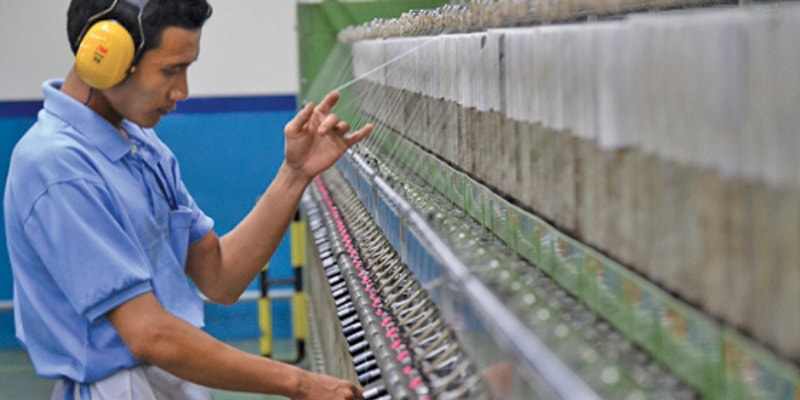
Coats, has been a frontrunner in colour management and Watson shares that people in Vietnam are extremely receptive to technology, to things that are internet based and upfront. “We are using the digital platform for our business because it’s faster and less prone to mistakes. Even the colour digital platform is very good because it allows colour to move around the world in an instant to do whatever you want to do with it. So again the ability to make colour digital allows us speed and accuracy, so that we can offer the right thread for the right colour faster than before,” says Watson. Going digital also implies that there is greater interaction between Coats factories around the world. “It’s an inter-dependent set up so that there is support. I talk to my counterparts from other countries, so that if there is any solution with anyone, it can be circulated and used,” details Watson.
Upfront as a sustainable company, Coats Vietnam has undertaken many sustainable initiatives not only on the labour front, but also in relation to the environment. “We have invested in biomass boilers which mean that you don’t burn depleting resources like fuel oil, gasoline or coal, instead we burn rice husks. We constructed the boiler so that the heat recovery saves the heat and then the smoke that has particles in it is filtered out before it goes in the air so we have no emission-boilers. This way we are also helping the farmers who need the additional income, now they can sell the rice and also the rice husks which give them more income. The ash of the rice husk can be resold back to the farmers as fertilizer. So, it’s a complete cycle,” shares Watson. Other initiatives include, expanding effluent treatment so that in about 2 years’ time 90 per cent of water is recycled and invested in solar power to supplement power for manufacturing.


